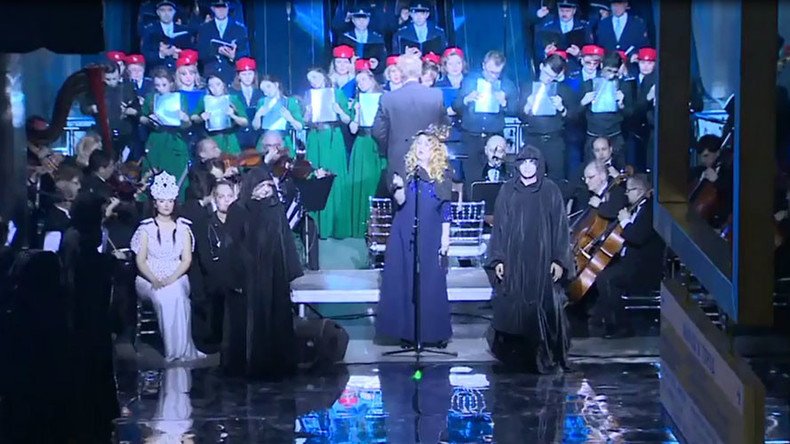‘Middle-earth’ on the Metro: Moscow station hosts Elvish-language opera (VIDEO)

Moscow’s metro system provided an unlikely Elvish concert hall for fans of the epic Lord of the Rings saga, as they were treated to a unique underground performance inspired by Tolkien’s work.
Fans of the epic fantasy trilogy gathered at the Delovoy Tsentr metro station in Russia’s capital on Friday night. The opera performance, presented primarily in the Elvish language, was accompanied by the Russian presidential orchestra, according to the Moscow metro website.
The music was written by Mikhail Kostylev, a 32-year-old Russian composer who, appropriately, also goes by the Elvish name Lind Erebros.
The concert, which marked the 125th anniversary of J. R. R. Tolkien’s birth and the 82nd anniversary of the Moscow Metro, was based on the author’s last, and posthumously published, work – The Silmarillion, a collection of mythopoeic works.
Победителями становятся: @mnmisram ваши 2 билета в партер и @stlzeee ваши 2 билета на балкон! Поздравляем! pic.twitter.com/kI03k34Aec
— Мосметро (@MoscowMetro) 12 мая 2017 г.
The Elvish ‘languages’ were created by Tolkien specifically for his Middle-earth universe.
The Moscow Metro also held a contest for the best drawings inspired by Tolkien’s The Lord of The Rings tomes and metro themes and awarded two lucky Elvish winners with tickets to the special event.
One of the winners drew the Moscow metro’s busiest station – Vykhino – with legendary Gandalf. The image plays on the character’s iconic phrase, with the wizard calling out ‘You shall Not Enter’ [Original: You Shall Not Pass] to crowds of commuters struggling to squeeze into rush-hour carriages.
"Ты не зайдёшь!!!"
— Ygg_dr (@mnmisram) 11 мая 2017 г.
Или станция метро Выхино утром.#операвметро#ночьвметро#LordOfTheRings#mosmetro@MoscowMetro@Evil_Squirrelpic.twitter.com/pr2jVv2gHg












